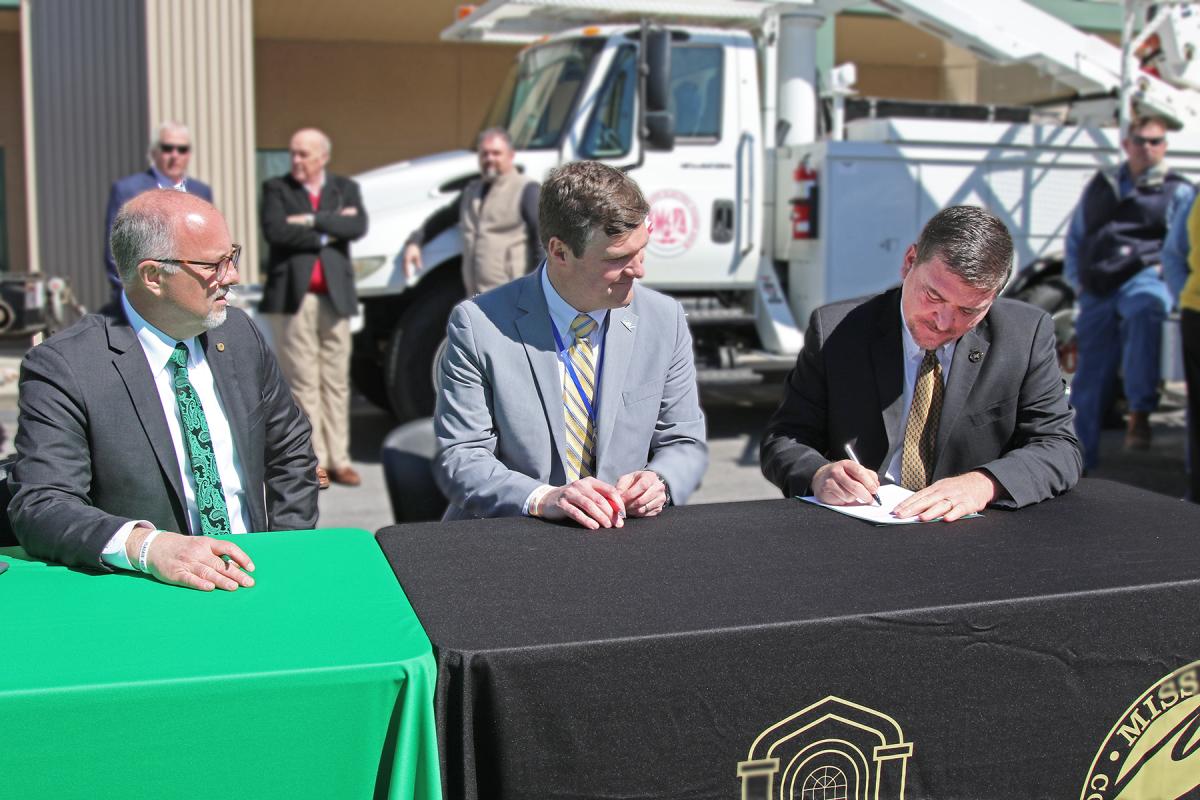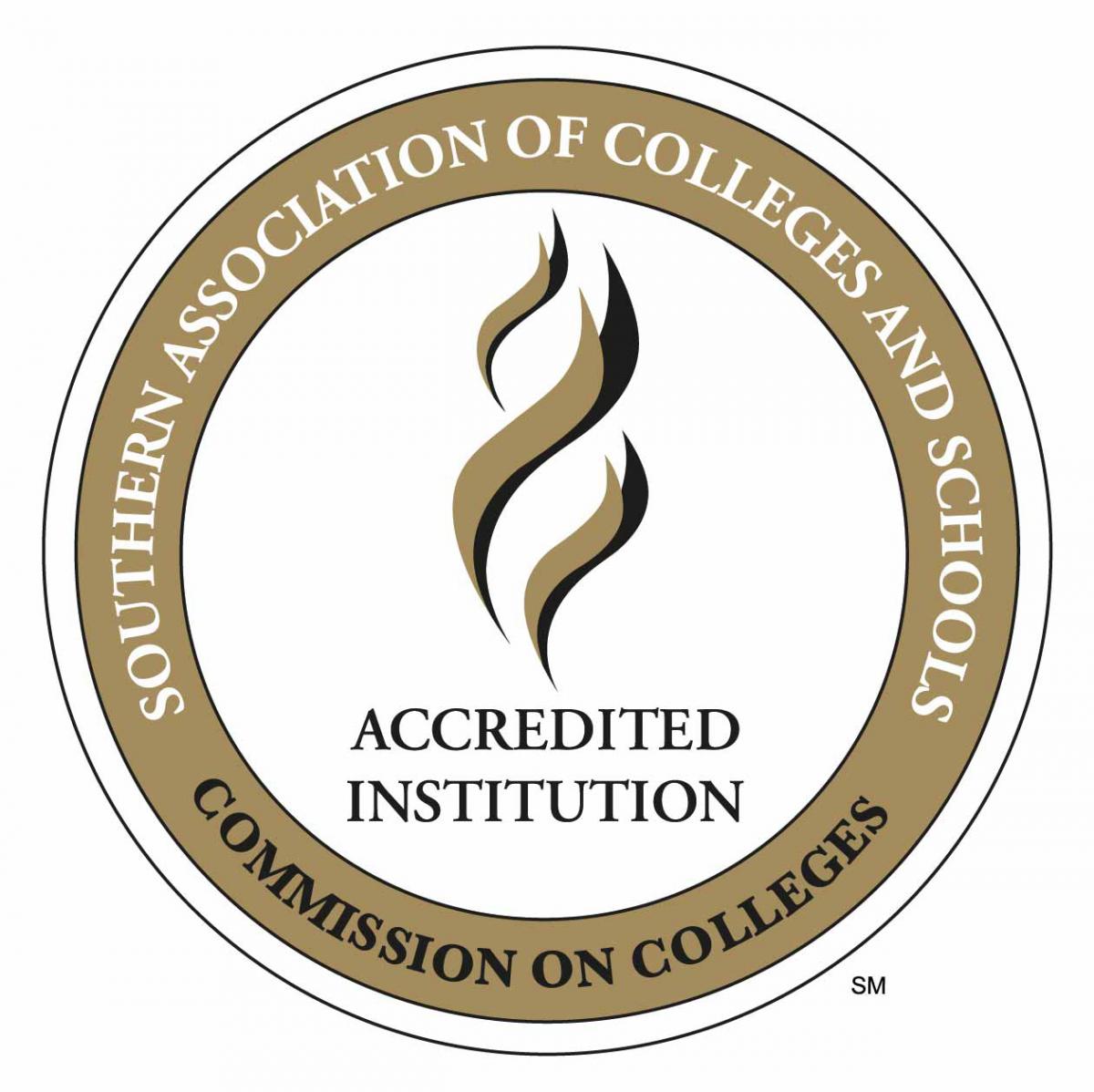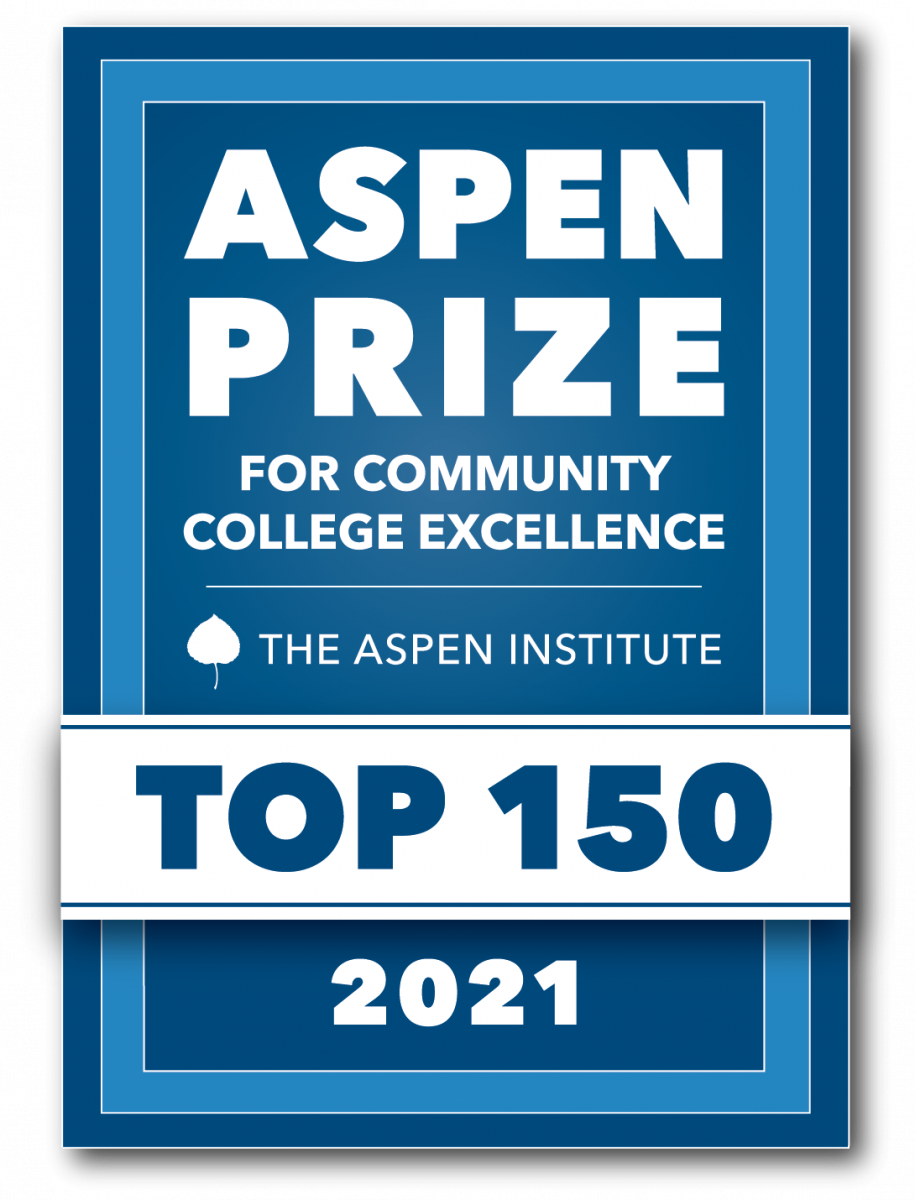March 2, 2022

East Central Community College President Dr. Brent Gregory (far right) signs the grant agreement while Meridian Community College President Dr. Tom Huebner (far left) and Mississippi Office of Workforce Development Executive Director Ryan Miller look on. The $1.4 million grant will allow the two colleges to expand their Utility Lineman programs. (EC Photo)
East Central Community College in Decatur and Meridian Community College are teaming up to grow their Utility Lineman programs thanks to a $1.4 million grant from the Mississippi Office of Workforce Development, also known as Accelerate Mississippi.
The grant will allow both colleges to expand their programs by hiring additional instructors and purchasing equipment.
The announcement was made at a ceremony Monday, Feb. 28, at MCC’s Riley Workforce Development Center.
Accelerate Mississippi, the lead office for workforce development strategy and coordination, was created in 2020 by legislation signed by the governor. Its mission is to align educational, training, and economic development initiatives to position Mississippi and Mississippians with diverse, productive, and well-paying employment.
Mississippi Office of Workforce Development Executive Director Ryan Miller, who made the grant announcement, said there’s a great need for utility line workers in the state of Mississippi.
“These are first responders,” Miller told those gathered. “These are men and women who put themselves in harm’s way to make sure we have power, to make sure we have connectivity. This is a sector we need to grow because we know there’s a great need in the state of Mississippi.
“Both of these colleges have years of experience in pouring themselves into their communities in lasting ways. What brings us here today was an opportunity where there was a sector in need and partners identified that collectively we can move the needle for this community and for the entire state of Mississippi.”
ECCC President Dr. Brent Gregory and MCC President Dr. Tom Huebner both stressed the importance of their colleges, located just 30 miles apart, to work together, not just on growing the Utility Lineman programs through this grant, but on future workforce development and training projects that benefit the counties they represent: Lauderdale, Leake, Neshoba, Newton, Scott, and Winston.
“We are extremely excited about this partnership and the funds to grow these two programs,” said Gregory. “East Central Community College has had a Utility Lineman Program for quite some time and this grant will enable us to grow this program, a program that gets individuals out in the workforce, not only in an area of need but in a job where individuals are able to support their families and stay in our communities.
“From a community college standpoint and from a workforce standpoint, we’ve been hearing for years why can’t we work together. Industry crosses barriers and I think this is a first step between these two institutions, but not a last step in working together to provide workforce education and training for this area of Mississippi.”
Huebner echoed Gregory’s thoughts on the importance of partnership.
“Anytime a college like ours receives a grant with the word ‘million’ in it, it’s a big deal,” said Huebner. “We are thankful because it represents confidence in what we do, a commitment to this region, and a belief that we have what it takes to create opportunities for industry and potential employees.
“The best part is that we are jointly awarded this grant with our friends to the west, East Central Community College. We are a team. We are a team with all our colleague institutions because we know we must work together to impact our communities and our state to be competitive and to be as transformative as we can possibly be. This grant reflects a new opportunity with a new approach to workforce development.”
ECCC’s 16-week Utility Lineman Program was launched in February 2019 to prepare students for entry-level employment in utility power transmission and distribution construction, troubleshooting, and repair to meet a need in that field. Over the duration of the class, successful students earn certifications including a Class A Commercial Driver’s License, First Aid CPR, and OSHA 10-Hour. Also, as part of the preliminary screening of applicants, students obtain a National Career Readiness Credential.





